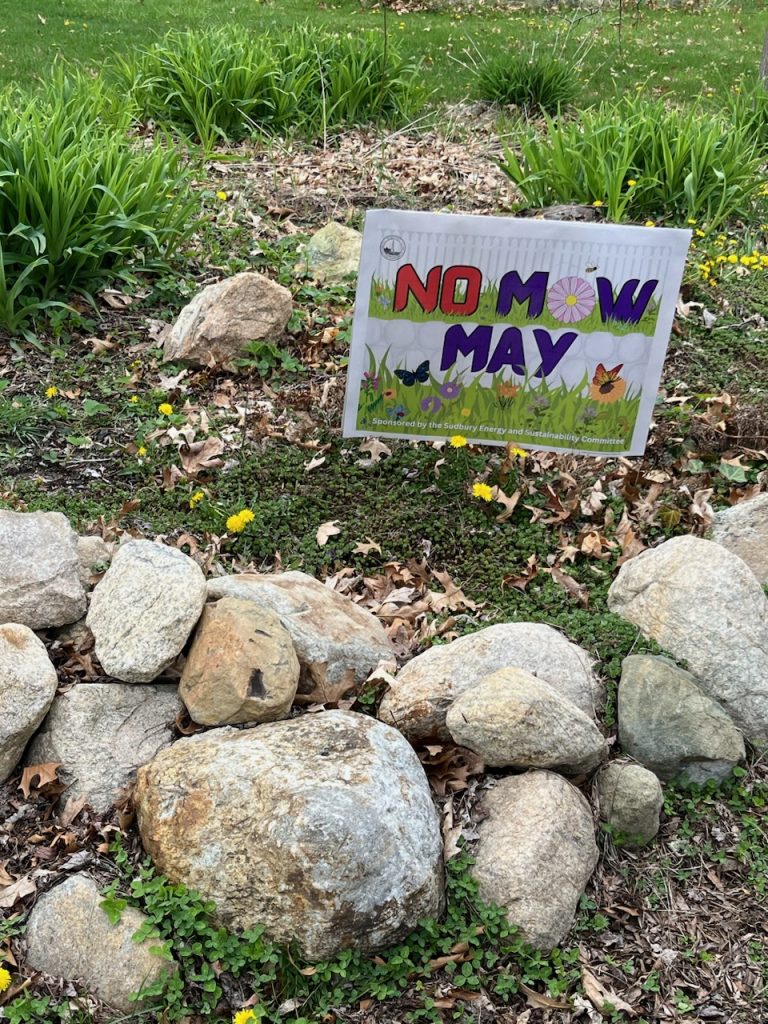Protect Our Pollinators with No Mow May
Many of our pollinator species have been on the decline due to habitat loss, disease, parasites, climate change, and environmental contamination. The Energy and Sustainability Committee is launching a new effort, No Mow May, to HELP PROTECT SUDBURY’S POLLINATORS.
No Mow May
As native vegetation is replaced by roadways, manicured lawns, non-native gardens, and impervious surfaces, pollinators lose the food and nesting sites that are necessary for their survival. You can help protect our native pollinators by participating in No Mow May! We are encouraging Sudbury residents to not mow their lawns until the month of May ends to help protect our pollinators, their food sources, and their habitats.
Free Yard Signs Available
The Energy and Sustainability Committee is giving out free eco-friendly and biodegradable “No Mow May” yard signs to recognize our pollinator-friendly households. Get your FREE sign at Sudbury Earth Day on Saturday, April 20. Just stop by the Energy & Sustainability Committee table in Noyes Gym to get your yard sign and be added to the “No Mow May” map.
Can’t make it to Earth Day? The signs will be available for pickup at the Facilities Department starting on Monday, April 22. More details on this coming soon.
WATCH WBZ-TV News Coverage of No Mow May:
About Pollinators
A pollinator is any animal or insect that helps carry pollen from the male part of the flower (the stamen) to the female part of the same or another flower (the stigma). The movement of pollen must occur for the plant to become fertilized and produce fruits, seeds, and young plants. Some pollinators that you may be familiar with include bees, wasps, moths, butterflies, birds, and bats. These insects and animals are essential components of our food system as they help to pollinate crops which are necessary for our survival.
A number of pollinator species hibernate underground in the winter, and don’t wake up until day and evening temperatures are consistently above 50 degrees. If you mow too early, you could wake up these pollinators before they are ready and destroy their food sources before they have a chance to feed and refuel from hibernation. You can make a difference! Take a break from yard work and join “No Mow May” to help save our pollinators.

